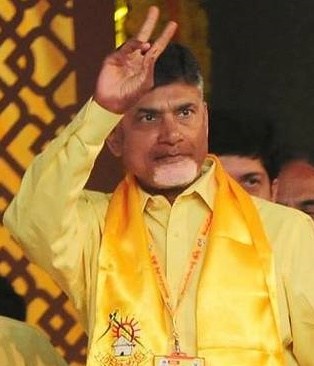The bold and hurried decision taken by Telugu Desam Party president N Chandrababu Naidu to boycott the Zilla and Mandal Parishad elections has not only sent shockwaves across the party hierarchy, but has also left seasoned political analysts scratching their heads.
Try as they might, they are unable to fathom how the TDP would benefit from Naidu’s decision, which has prompted many questions. What would happen if a political party, which has to play the role of constructive opposition if it intends to keep the democratic setup healthy, boycotts elections?
Will such a move stop the ruling party and work in favour of the TDP? Would it convince voters to back the party? Is it possible for a political party with a good electoral track record to regroup, and convince voters that it will work for them and stand by them in their hour of need?
Naidu may have taken the boycott decision to ‘expose’ the YSRCP’s ‘mis-utilisation’ of government machinery to win elections, but it appears that in the long run, it may do the TDP more harm than good.
The decision has added to Naidu’s already overflowing cup of worries — the recent impressive performance of the ruling YSRCP in the gram panchayat and ULB polls, the drastic reduction of its vote share across the state are among the two major causes of concern for the TDP chief.
Worldwide, political parties flourish only if they contest or participate in elections at all levels, right from local bodies to State and Central level.
The Left parties and the BJP, prior to their participation in alliance politics had implemented this theory. They did so because their leaders knew that the only way to strengthen at the grassroots level was by contesting elections, win or lose. Contesting every election would ensure that the party remains in the minds of the public.
This strategy of protecting their vote bank helped at least three parties make inroads electorally.
The CPI and CPI (M) had struck a deal with TDP under the leadership of NT Rama Rao ahead of the 1994 Assembly elections.
Following this deal, CPI won 19 and CPI (M) bagged 15 seats in the elections. With their enhanced strength in the Assembly, both the Left parties played a crucial role during debates and discussions between 1994 and 1999. Since they had been protecting their traditional vote bank, the Left parties could get a respectable number of seats as part of the deal with the NTR-led TDP.
The BJP too managed to get a good deal from the Naidu-led TDP in 1999 and ended up winning 12 seats, its best performance yet.
These performances are the perfect examples of how political parties can benefit if they protect their vote bank by contesting every election.
Bringing the party to households and in the minds of the people is not easy. It requires sustained effort and regular contact with the voters. It’s like a chain that will snap if the party stays away from elections.
This is the danger the TDP faces following its decision to boycott the Parishad elections. Also, the TDP would have no representation in rural local bodies which is very crucial in influencing people.
Also, the five years of sitting on the sidelines before it gets another chance to have some representations in the Parishads, would definitely be a painful experience for a four-decade-old party like the TDP.
It would be a laborious task to keep the party cadre active in rural pockets without having representation in rural local bodies.
Some TDP activists who were disappointed with the party’s decision have made it clear that they would be contesting the polls. This kind of defiance may actually help them win some seats and the TDP too may not disown them later.
The general opinion about Naidu was that he was someone that would consult everyone in the party before taking a decision, but this time around, it was unilateral, if sources are to be believed.
In his defence, Naidu mentioned the similar decisions (boycotting LB polls) taken by leaders like Jayalalithaa and Jyoti Basu. The decisions of those leaders were based on tact, just like Mayawati who opted out of the ULB polls in Uttar Pradesh in 2007.
She correctly gauged the fact that the BJP was quite influential in urban areas and even a decent performance would not be wise for the BSP. She focused on the future Assembly elections and when on to win 207 of the 400 seats.
It may be an uphill task for Naidu to implement Mayawati’s strategy in AP due to the growing influence of Chief Minister YS Jaganmohan Reddy.
Meanwhile, Naidu may rethink his decision in the backdrop of the High Court’s latest direction that put off parishad elections slated for April 8. #KhabarLive #hydnews







